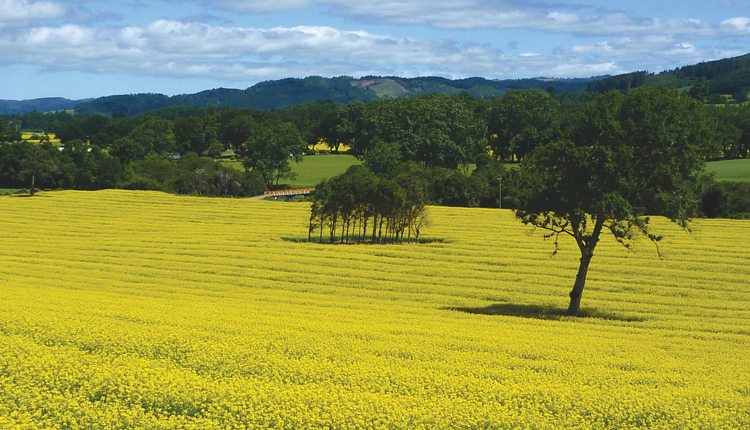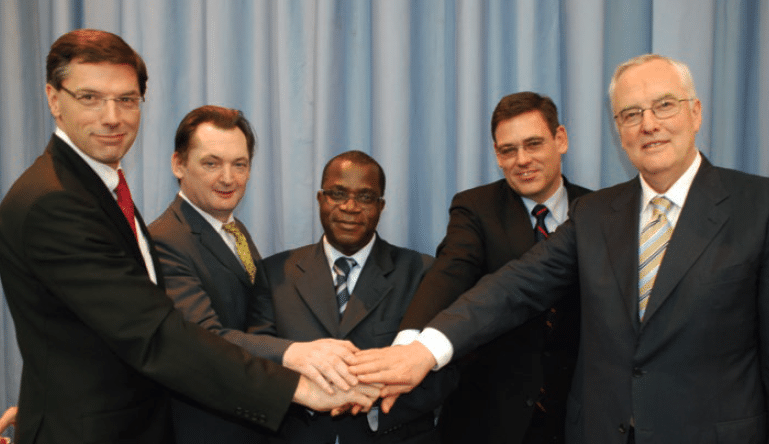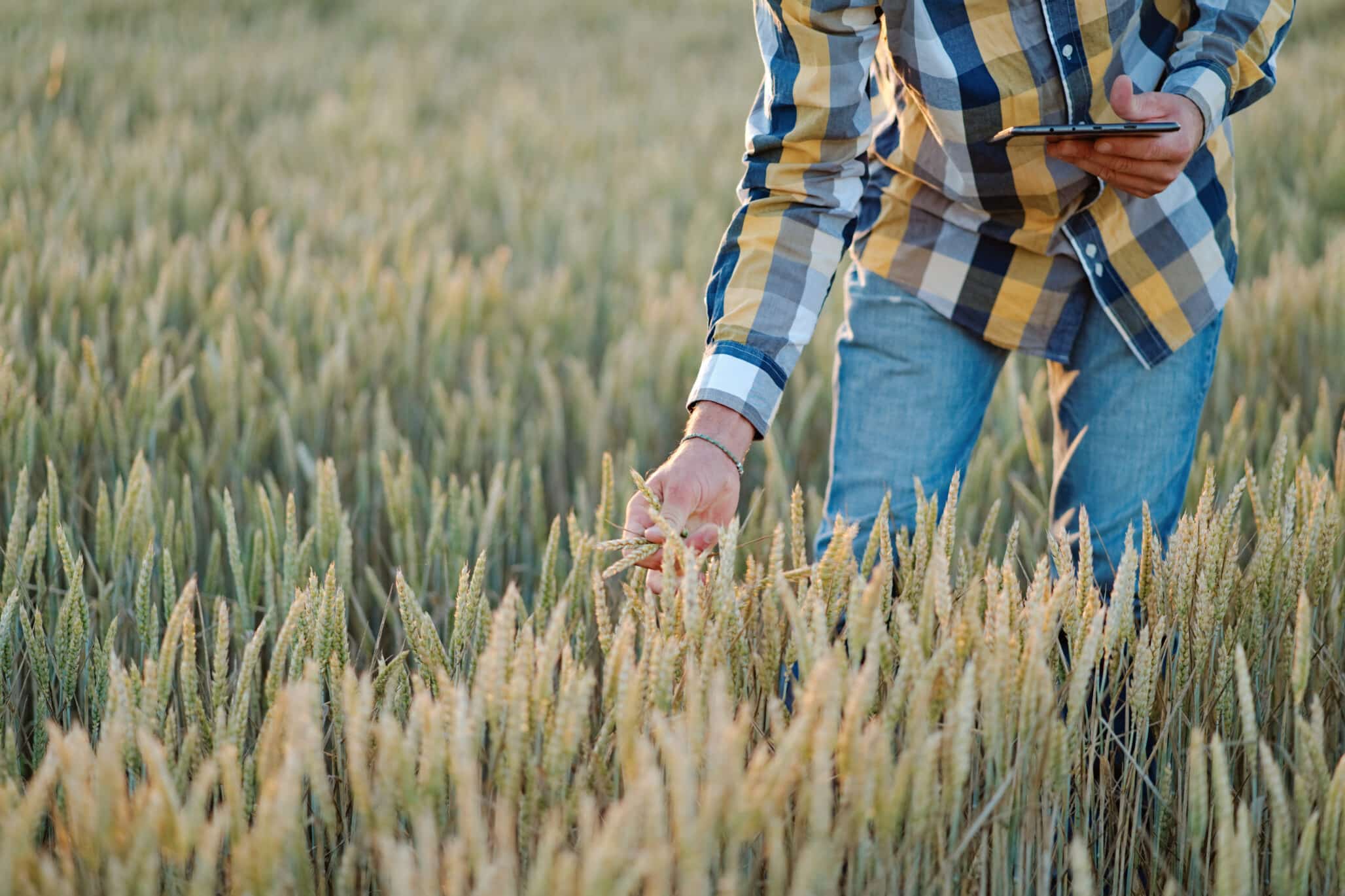Doing business internationally is a bigger challenge than ever for seed companies, but the international community is working together to overcome it.
_x000D_
Scott Horner knows a thing or two about how hard it is to move seed across borders. The general manager for the Alberta-based pedigreed seed producer HyTech Production Ltd. says the roadblocks to doing business internationally are plentiful, and HyTech deals with them every day — it operates a location in Chile and ships seed to more than a dozen countries annually._x000D_
_x000D_
“Unfortunately it happens from time to time that complications arise that restrict our ability to deliver seed production to certain markets for customers,” Horner says. “Import requirements for certain countries can be difficult to obtain or sometimes change without notice making compliance time-consuming and difficult to achieve._x000D_
_x000D_
“Sometimes a customer will choose to ship seed to a specific country after harvest has occurred, only to find out that the import permit requires field inspection for a specific disease, and despite the fact that lab tests exist, the field inspection is the only method the importing country will accept, and import is denied. Other times import permits are slow to be issued, limiting our ability to comply with requirements. In general, it’s difficult to get the National Plant Protection Organizations of exporting and importing countries to work together to find solutions.”_x000D_
_x000D_
It’s a convoluted process, and a seemingly growing number of global issues represent a hurdle that the seed industry is continually trying to overcome to do business globally._x000D_
_x000D_
Looking for Clarity_x000D_
_x000D_
Calgary’s Kevin Brost is global director for FMC’s seed treatment division. For Brost, the sea of global regulations concerning seed treatments are a challenge he deals with daily._x000D_
_x000D_
“As a global company, we operate in almost every agricultural country in the world,” Brost says. “It’s difficult when you’re trying to develop products across borders when you have multiple regulatory systems. You have to adapt to reflect the regulatory regime in every country, and there are a number of countries that have evolving regulatory regimes, which makes it even more difficult. It’s our biggest issue and our single biggest cost of doing business. When you have new technologies, you first take them to the countries where the regulatory climate is most scientific and predictable. There may be countries where you simply don’t bring them forward at all, as the costs and timelines of introduction are large or unpredictable.”_x000D_
_x000D_
It’s about picking and choosing, and being aware of which parts of the world understand and evaluate technologies scientifically and logically. Unpredictable requirements, timelines and costs associated with such make it difficult to do business, Brost says. FMC accomplishes that by interacting with regulatory bodies around the world and understanding the proper requirements._x000D_
_x000D_
“That doesn’t always fix things today, but you hope you can influence harmonization around the globe,” Brost says. “Similar or identical requirements or studies between borders make technology more widely available.”_x000D_
_x000D_
But Horner adds that clarity is often a major issue when it comes to moving seed across borders. “You can’t always find information on proper procedures to take in order to execute the exports, so we’ve been really involved with the International Seed Federation (ISF) and the Seed Association of the Americas (SAA), which work to improve international trade of seed and reduce barriers to the seed trade,” Horner says._x000D_
_x000D_
Brost agrees that wading through a sea of different rules and regulations is a huge barrier to the smooth movement of seed across borders._x000D_
_x000D_
“Quarantine issues are an issue when it comes to seed movement internationally,” Brost says. “Sometimes countries have specific seed treatment requirements, and that brings with it its own set of complications. Other times it’s not specific, they just specify that seed needs to be clean._x000D_
_x000D_
So a lot of times, the rules are not entirely clear to move seed across borders — they’ll state a technical but there may not be an appropriate product available. It makes it very difficult for a seed producer because they may not have access to the products or the active.”_x000D_
_x000D_
Even Canada isn’t immune to the issue, Brost adds. “In Canada you need an export label, and the process for that is not always easy or clear. You may not be able to get the specific product required to get that seed across borders. It isn’t simple. We are working with SAA and ISF at trying to improve that.”_x000D_
_x000D_
Simplifying things may seem like an impossible task sometimes, but as the world increasingly becomes a global village connected via the Internet, it’s becoming easier in a number of ways._x000D_
_x000D_
Connecting with Europe and Beyond_x000D_
_x000D_
When it comes to airing concerns over phytosanitary issues at the international level, Horner says the annual ISF World Seed Congress is one way of doing that. He recently returned from this year’s event held in Kraków, Poland._x000D_
_x000D_
“A great deal of focus is being put on raising awareness with regulators and industry when it comes to phytosanitary issues. Those activities have been very valuable in raising awareness on both sides and bringing some real solutions to the table,” he says._x000D_
_x000D_
The World Seed Congress brings seed industry members from around the world together every year to discuss all things seed-related. The 2015 event in Poland drew a record crowd of over 1,600._x000D_
_x000D_
Based in Switzerland, ISF represents the interests of the seed industry at a global level by engaging with public and private institutions to facilitate international seed trade. Being involved in an international lobby group that happens to be based in Europe is a huge asset for Terry Ewacha, executive vice-president of wholesale for DLF Pickseed in Manitoba._x000D_
_x000D_
Global seed supply is an issue that’s of major concern for Ewacha. He says with forage seed commodity prices on a downswing, it’s important to keep up-to-date with what’s happening in Europe and around the world. What happens globally affects business here at home._x000D_
_x000D_
“With the lower commodity prices, there’s more forage seed production in Europe that potentially displaces some of our production and adds to global supply,” he says. “It’s not good for our industry — we’re a niche market and as soon as you get too much production building in Europe, that impacts pricing even more.”_x000D_
_x000D_
For Ewacha, two international issues of interest are export demand in Europe and European regulations concerning low-level presence (LLP) — the unintended presence, at low levels, of a genetically modified (GM) crop that is authorized for commercial use or sale in one or more countries, but is not yet authorized in an importing country._x000D_
_x000D_
“We’d like to see a little more tolerance toward GMOs, at least by having some minimum presence levels,” Ewacha says. “They’re tested, and most seed companies have a good protocol in place, but that’s always a concern we have to be careful with when it comes to exports.”_x000D_
_x000D_
Agriculture and Agri-Food Canada (AAFC) notes that Canada currently has a case-by-case, risk-based approach to respond to the presence of LLP in imports. Garlich von Essen, secretary-general for the European Seed Association (ESA), says that the European Union has yet to develop a formal set of rules for low-level presence of GMOs in non-GM products and a respective threshold._x000D_
_x000D_
“The EU has restricted its alleged ‘solution’ to only the tip of what is seen as an iceberg of problems, by limiting it to only a few products and setting a level of detection of 0.1 per cent as the highest acceptable level,” von Essen says._x000D_
_x000D_
When it comes to LLP and the GMO debate in Europe (the European Commission recently decided to allow its member states to restrict or even ban the import of GM crops into their respective countries), Ewacha says the forage seed industry is at an advantage — for now._x000D_
_x000D_
“We don’t have any GMO products to date in the forage seed industry. However, there are discussions in the U.S. where there are a couple products that are not GMOs but are Roundup-resistant, and that has the European community concerned,” Ewacha says._x000D_
_x000D_
“The biggest issue we run into is GMO canola which may be contaminated with some of our products, but there are checks and balances in place and we tend to manage quite well.”_x000D_
_x000D_
Focusing on the Positives_x000D_
_x000D_
Despite the challenges and frustrations that come with doing business internationally, in some areas things are improving, and the international community is working together to ease the movement of seed across borders._x000D_
_x000D_
“Things work quite smoothly importing seed to the United States and from the United States into Canada,” Horner says. “Requirements are clear, and we’ve found officials on both sides of the border to be helpful when it comes to finding solutions to enable seed shipments to move in a timely and efficient manner.”_x000D_
_x000D_
Brost says that while Canada’s Pest Management Regulatory Agency and the Environmental Protection Agency in the United States might still do things very differently in many regards, he sees things improving as far as communication between the two agencies._x000D_
_x000D_
For Ewacha, doing business internationally is a relatively smooth process where, once again, the forage seed industry is at an advantage._x000D_
_x000D_
“We’ve been fortunate with most of our products that go overseas or into the United States — there haven’t been a lot of restrictions. We have to do phytosanitary testing on some products, but in most cases there are no issues,” he says. “A lot of our products that go to Europe go with an orange international certificate, which is an arms-length analysis done by authorized labs.”_x000D_
_x000D_
Taking part in international seed associations and other groups is a big asset for companies such as HyTech._x000D_
_x000D_
“We definitely see the value in supporting and participating in the activities of seed associations like the Canadian Seed Trade Association, ANPROS in Chile and the American Seed Trade Association, which take an active approach to addressing trade barriers. We participate in international associations such as SAA and ISF in order to remain current on trade developments and to have a voice within the industry,” Horner explains. “We strongly believe the solution is through collaboration, rather than trying to combat these issues alone.”_x000D_
_x000D_
_x000D_
_x000D_
World Seed Congress Offers Big Value
_x000D_
The 2015 International Seed Federation (ISF) World Seed Congress in Kraków, Poland, set a new record with more than 1,600 attendees._x000D_
_x000D_
It’s recognized as one of the most valuable international seed industry events. “The major reason we go is because many of our clients attend,” says Terry Ewacha, executive vice-president of wholesale for DLF Pickseed in Manitoba. “It’s a hugely productive way of getting in touch with your customers. Most people are there at one time, and it’s a busy time with client meetings, exchanges of information, and is just another method of face-to-face contact and seeing what’s being developed for the coming season._x000D_
_x000D_
The United States is DLF Pickseed’s biggest export market, and Ewacha says connecting with international clients is hugely important._x000D_
_x000D_
For Scott Horner, general manager for HyTech Production Ltd., a highlight this year was hearing Michael Keller, the new ISF secretary general speak. Keller called for change during his first speech to ISF delegates._x000D_
_x000D_
“It was really good to hear his vision for the association and what he believes needs to be done to improve the seed industry globally,” Horner says. “I was impressed with his perspective and recognition of the challenges the industry is facing. I was left with a good degree of confidence in where ISF is going.”_x000D_
_x000D_
Calgary’s Kevin Brost, global director for FMC’s seed treatment division, says ISF only becomes more relevant as technology progresses. “ISF has been particularly important over the past decade, as we’ve seen seed-applied technologies become a bigger part of the industry because of the increased value of genetics globally,” he says. “Increased value has meant protecting that input cost has become increasingly important to the grower. That has increased the importance of events like the World Seed Congress. For us, it’s the one time of year you can touch a lot of bases globally.”












